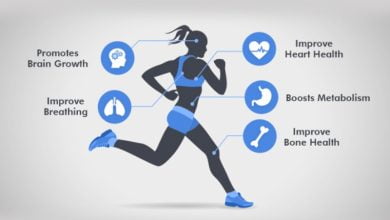Supporting Brain Health: An Overview of Strategies and Practices

Introduction
Maintaining optimal brain health is crucial for overall well-being and cognitive function throughout life. As the center of our thoughts, emotions, and actions, the brain plays a fundamental role in virtually every aspect of our daily lives. From memory and decision-making to emotional regulation and motor skills, a healthy brain is essential for navigating the complexities of modern life. In this comprehensive overview, we’ll explore various strategies and practices to support brain health, empowering individuals to take proactive steps towards cognitive vitality and longevity.
Understanding Brain Health
Brain health encompasses a wide range of factors that contribute to the structure, function, and resilience of the brain. Key components of brain health include:
Cognitive Function:
This refers to the brain’s ability to process information, learn, remember, and solve problems effectively. Cognitive function encompasses various domains, including attention, memory, executive function, and language skills.
Emotional Well-being:
The brain plays a central role in regulating emotions and mood states. Optimal brain health is associated with greater emotional resilience, the ability to cope with stress, and a positive outlook on life.
Neuroplasticity:
Neuroplasticity refers to the brain’s ability to adapt and reorganize in response to experiences, learning, and environmental stimuli. Maintaining neuroplasticity is essential for lifelong learning, skill acquisition, and cognitive flexibility.
Neuroprotection:
Protecting the brain from damage and degeneration is crucial for preserving cognitive function and preventing age-related decline. Strategies that promote neuroprotection include antioxidant-rich diets, regular exercise, and stress management techniques.
Strategies for Supporting Brain Health
Healthy Diet:
A nutrient-rich diet is essential for brain health, providing the vitamins, minerals, and antioxidants necessary for optimal function. Foods rich in omega-3 fatty acids (found in fatty fish, flaxseeds, and walnuts), antioxidants (found in colorful fruits and vegetables), and whole grains support cognitive function and reduce the risk of cognitive decline.
Regular Exercise:
Physical activity has numerous benefits for brain health, including improved blood flow, neurogenesis (the birth of new neurons), and the release of endorphins, which promote mood and reduce stress. Both aerobic exercise (such as walking, swimming, or cycling) and strength training have been shown to support cognitive function and neuroplasticity.
Quality Sleep:
Adequate sleep is essential for brain health, facilitating memory consolidation, emotional regulation, and neural repair processes. Aim for 7-9 hours of quality sleep per night, practicing good sleep hygiene habits such as maintaining a consistent sleep schedule, creating a relaxing bedtime routine, and minimizing exposure to screens before bed.
Stress Management:
Chronic stress can have detrimental effects on brain health, contributing to inflammation, oxidative stress, and neurodegeneration. Practice stress management techniques such as mindfulness meditation, deep breathing exercises, yoga, or spending time in nature to promote relaxation and resilience.
Mental Stimulation:
Engaging in mentally stimulating activities, such as reading, puzzles, crossword puzzles, learning a new language, or playing musical instruments, can help maintain cognitive function and promote neuroplasticity. Lifelong learning and intellectual curiosity are associated with a lower risk of cognitive decline and dementia.
Social Connection:
Strong social connections are essential for brain health, providing emotional support, cognitive stimulation, and a sense of belonging. Stay connected with friends, family, and community by participating in social activities, volunteering, or joining clubs and organizations.
Brain-Healthy Supplements:
Certain supplements may support brain health and cognitive function, including omega-3 fatty acids, vitamin D, B vitamins, antioxidants (such as vitamin E and coenzyme Q10), and herbs like ginkgo biloba and turmeric. However, it’s essential to consult with a healthcare professional before starting any new supplements, as individual needs and medical conditions vary.
Brain Training Programs:
Brain training programs, such as Lumosity, BrainHQ, or Elevate, offer games and exercises designed to challenge and stimulate various cognitive abilities, including memory, attention, and problem-solving skills. While research on the effectiveness of these programs is mixed, some studies suggest that regular cognitive training may have benefits for certain aspects of cognitive function.
Conclusion:
Maintaining optimal brain health is a lifelong journey that requires a holistic approach encompassing nutrition, exercise, sleep, stress management, mental stimulation, social connection, and other lifestyle factors. By incorporating brain-supportive strategies and practices into daily life, individuals can promote cognitive vitality, emotional well-being, and overall quality of life throughout the lifespan. Whether through nourishing the body with nutrient-rich foods, exercising the mind with stimulating activities, or fostering social connections that nourish the soul, investing in brain health is an investment in a brighter, more vibrant future.In today’s fast-paced world, where stress and information overload are the norm, maintaining optimal brain health has become more important than ever. But what exactly does it take to keep our brains in top form? This comprehensive overview aims to answer that question by delving into the supportive measures that can unlock the secrets to optimal brain health.
The Importance of Brain Health
Our brains are the control centers of our bodies, responsible for everything from basic bodily functions to complex cognitive processes. It is no wonder then that taking care of our brains is crucial for overall well-being. Optimal brain health has been linked to improved focus, memory, cognitive function, and even mood. By understanding the factors that affect brain health, we can take proactive steps to support and enhance its functioning.
Factors that Affect Brain Health
Several factors can impact brain health, and being aware of them can help us make informed decisions about our lifestyle choices. Firstly, nutrition plays a vital role in brain health. Our brains require a steady supply of nutrients to function optimally, and a diet rich in antioxidants, omega-3 fatty acids, and vitamins can support brain health. Similarly, regular exercise has been shown to improve blood flow to the brain, stimulate the growth of new brain cells, and enhance cognitive function. On the other hand, poor sleep can impair brain function, affect memory consolidation, and increase the risk of cognitive decline. Additionally, mental stimulation through activities like reading, puzzles, and learning new skills can keep our brains sharp. Lastly, managing stress and maintaining social connections are crucial for brain health.
Nutrition for Optimal Brain Health
A healthy, balanced diet is essential for brain health. Certain nutrients have been found to support brain function and protect against age-related cognitive decline. Antioxidants, such as vitamins C and E, help combat oxidative stress and reduce inflammation in the brain. Foods rich in antioxidants include berries, dark chocolate, and green leafy vegetables. Omega-3 fatty acids, found in fatty fish like salmon, have been linked to improved cognitive function and reduced risk of dementia. B vitamins, especially B6, B9, and B12, are essential for brain health and can be found in foods like eggs, nuts, and leafy greens. Additionally, staying hydrated is important for brain health, as even mild dehydration can impair cognitive function.
Exercise and Brain Health
Regular exercise not only benefits our physical health but also plays a significant role in brain health. Physical activity increases blood flow to the brain, delivering oxygen and nutrients necessary for optimal functioning. Exercise has been shown to stimulate the release of growth factors that promote the growth of new brain cells and enhance connectivity between neurons. It has also been linked to improved memory, attention, and cognitive function. Engaging in activities like walking, running, cycling, or dancing for at least 150 minutes a week can have significant benefits for brain health. Additionally, incorporating strength training exercises can further enhance brain function.
Sleep and Brain Health
Quality sleep is essential for brain health as it allows the brain to rest, repair, and consolidate memories. During sleep, the brain clears out toxins that accumulate during waking hours, including those associated with Alzheimer’s disease. Lack of sleep or poor sleep quality can impair cognitive function, affect memory, and increase the risk of developing neurological disorders. To promote optimal brain health, it is important to establish a regular sleep schedule, create a sleep-friendly environment, and practice relaxation techniques before bedtime. Avoiding stimulants like caffeine and electronic devices close to bedtime can also improve sleep quality.
Mental Stimulation and Brain Health
Keeping our brains mentally stimulated is key to maintaining optimal brain health. Engaging in activities that challenge our cognitive abilities helps to build new neural connections and enhance brain function. Reading, solving puzzles, playing strategy games, and learning new skills are all excellent ways to keep our brains sharp. Additionally, seeking out new experiences and environments can stimulate brain activity and promote cognitive flexibility. It is never too late to start learning, and incorporating mental stimulation into our daily routines can have long-lasting benefits for brain health.
Stress Management and Brain Health
Chronic stress can have detrimental effects on brain health, leading to cognitive decline, memory problems, and even mental health disorders. It is important to develop effective stress management techniques to protect our brains from the damaging effects of stress. Practices like mindfulness meditation, deep breathing exercises, and yoga have been shown to reduce stress levels and improve brain function. Engaging in hobbies, spending time in nature, and cultivating positive relationships can also help alleviate stress. Prioritizing self-care and finding healthy ways to cope with stress are essential for maintaining optimal brain health.
Social Connections and Brain Health
Human beings are social creatures, and social connections play a crucial role in brain health. Engaging in meaningful relationships and maintaining a strong support network can promote brain health and cognitive resilience. Social interaction stimulates brain activity, helps reduce the risk of cognitive decline, and enhances overall well-being. Participating in social activities, joining clubs or organizations, and spending quality time with loved ones are all ways to foster social connections and support brain health.
Supplements for Brain Health
While a healthy diet should provide most of the necessary nutrients for optimal brain health, some individuals may benefit from supplements. Omega-3 fatty acid supplements, for example, can be useful for those who do not consume enough fatty fish. Other supplements, such as B vitamins, vitamin D, and antioxidants, may also be beneficial for brain health. However, it is essential to consult with a healthcare professional before starting any new supplements, as individual needs may vary and certain supplements may interact with medications.
Conclusion: Taking a Holistic Approach to Brain Health
Maintaining optimal brain health requires a holistic approach that encompasses various supportive measures. From nutrition and exercise to sleep, mental stimulation, stress management, and social connections, every aspect of our lifestyle plays a role in brain health. By understanding the science behind brain health and implementing practical tips and strategies, we can unlock our brain’s full potential. Let us prioritize our brain health and make conscious choices to support our cognitive well-being in this fast-paced world.
Unlocking the Secrets of Cognitive Function: A Comprehensive Exploration
Cognitive function is the cornerstone of human intelligence and encompasses a wide array of mental processes that enable us to perceive, understand, and interact with the world around us. From simple tasks like remembering a phone number to complex activities such as problem-solving or creative expression, cognitive function influences virtually every aspect of our lives. In this detailed exploration, we’ll delve into the intricacies of cognitive function, examining its components, importance, factors that influence it, and strategies for optimizing it.
Understanding Cognitive Function
Cognitive function refers to the mental processes involved in acquiring, processing, storing, and retrieving information. These processes are essential for various cognitive abilities, including:
Memory:
The ability to encode, store, and retrieve information over time. Memory encompasses short-term memory (working memory), long-term memory (declarative and procedural memory), and episodic memory (memory of specific events).
Attention:
The ability to focus mental resources on relevant stimuli while ignoring distractions. Attention allows us to concentrate on tasks, sustain focus over time, and switch attention between different tasks or stimuli.
Executive Function:
Higher-level cognitive processes responsible for planning, decision-making, problem-solving, inhibition, cognitive flexibility, and goal-directed behavior. Executive function enables us to set goals, prioritize tasks, and regulate our thoughts, emotions, and actions.
Language:
The ability to understand and produce spoken or written language. Language encompasses various components, including comprehension, expression, syntax, semantics, and pragmatics.
Perception:
The process of organizing and interpreting sensory information from the environment to make sense of the world around us. Perception involves the senses (vision, hearing, touch, taste, smell) and integrates sensory input with prior knowledge and expectations.
Spatial Skills:
The ability to perceive, interpret, and navigate spatial relationships in the environment. Spatial skills are essential for tasks such as navigation, map reading, and spatial reasoning.
Factors Influencing Cognitive Function
Several factors can influence cognitive function throughout life, including:
Genetics:
Genetic factors play a significant role in determining cognitive abilities, influencing traits such as intelligence, memory capacity, and processing speed. However, genetics interact with environmental factors, and cognitive function is not solely determined by genes.
Lifestyle Factors:
Lifestyle choices, such as diet, exercise, sleep, stress management, and social engagement, can profoundly impact cognitive function. Regular physical activity, a balanced diet rich in nutrients, adequate sleep, and stress reduction techniques promote optimal brain health and cognitive function.
Environmental Factors:
Environmental factors, including education, socioeconomic status, access to healthcare, environmental toxins, and social support networks, can influence cognitive development and function. Early childhood experiences and ongoing environmental enrichment play critical roles in shaping cognitive abilities.
Brain Health:
The overall health and integrity of the brain, including factors such as neuroplasticity, neurogenesis, neurotransmitter function, and cerebral blood flow, are essential for maintaining cognitive function. Protecting the brain from damage and degeneration through healthy lifestyle choices is crucial for preserving cognitive vitality.
Age:
While cognitive abilities typically peak in young adulthood and remain stable through midlife, cognitive decline may occur with advancing age. Age-related changes in the brain, such as reduced gray matter volume, synaptic pruning, and alterations in neurotransmitter levels, can impact cognitive function. However, cognitive decline is not inevitable, and lifestyle factors can mitigate age-related changes.
Optimizing Cognitive Function:
While cognitive abilities may vary from person to person, there are several strategies for optimizing cognitive function and promoting brain health:
Healthy Lifestyle:
Adopting a healthy lifestyle that includes regular exercise, a balanced diet, adequate sleep, stress management, and social engagement is essential for maintaining cognitive function and supporting brain health.
Mental Stimulation:
Engaging in intellectually stimulating activities, such as reading, puzzles, crossword puzzles, learning new skills, or playing musical instruments, promotes neuroplasticity, cognitive reserve, and mental acuity.
Social Connection:
Maintaining social connections and participating in social activities can help preserve cognitive function, reduce the risk of cognitive decline, and promote emotional well-being.
Brain-Healthy Diet:
Consuming a nutrient-rich diet that includes omega-3 fatty acids, antioxidants, vitamins, and minerals supports brain health and cognitive function. Foods such as fatty fish, nuts, seeds, fruits, vegetables, whole grains, and lean proteins provide essential nutrients for brain health.
Stress Reduction:
Managing stress through relaxation techniques, mindfulness meditation, deep breathing exercises, or yoga reduces the negative impact of stress on the brain and promotes cognitive resilience.
Cognitive Training:
Engaging in cognitive training programs or brain games that target specific cognitive abilities, such as memory, attention, or executive function, may help maintain or improve cognitive function in older adults.
Regular Health Check-ups:
Monitoring and managing chronic health conditions, such as hypertension, diabetes, or cardiovascular disease, is crucial for preserving brain health and reducing the risk of cognitive decline.
Conclusion:
Cognitive function is a multifaceted aspect of human cognition that influences every aspect of our lives. From memory and attention to problem-solving and language skills, cognitive function is essential for navigating the complexities of modern life. By understanding the components of cognitive function, identifying factors that influence it, and adopting strategies for optimizing it, individuals can promote cognitive vitality, resilience, and well-being throughout life. Whether through lifestyle modifications, mental stimulation, social engagement, or cognitive training, investing in cognitive function is an investment in a brighter, more vibrant future.In today’s fast-paced world, where stress and information overload are the norm, maintaining optimal brain health has become more important than ever. But what exactly does it take to keep our brains in top form? This comprehensive overview aims to answer that question by delving into the supportive measures that can unlock the secrets to optimal brain health.
The Importance of Brain Health
Our brains are the control centers of our bodies, responsible for everything from basic bodily functions to complex cognitive processes. It is no wonder then that taking care of our brains is crucial for overall well-being. Optimal brain health has been linked to improved focus, memory, cognitive function, and even mood. By understanding the factors that affect brain health, we can take proactive steps to support and enhance its functioning.
Factors that Affect Brain Health
Several factors can impact brain health, and being aware of them can help us make informed decisions about our lifestyle choices. Firstly, nutrition plays a vital role in brain health. Our brains require a steady supply of nutrients to function optimally, and a diet rich in antioxidants, omega-3 fatty acids, and vitamins can support brain health. Similarly, regular exercise has been shown to improve blood flow to the brain, stimulate the growth of new brain cells, and enhance cognitive function. On the other hand, poor sleep can impair brain function, affect memory consolidation, and increase the risk of cognitive decline. Additionally, mental stimulation through activities like reading, puzzles, and learning new skills can keep our brains sharp. Lastly, managing stress and maintaining social connections are crucial for brain health.
Nutrition for Optimal Brain Health
A healthy, balanced diet is essential for brain health. Certain nutrients have been found to support brain function and protect against age-related cognitive decline. Antioxidants, such as vitamins C and E, help combat oxidative stress and reduce inflammation in the brain. Foods rich in antioxidants include berries, dark chocolate, and green leafy vegetables. Omega-3 fatty acids, found in fatty fish like salmon, have been linked to improved cognitive function and reduced risk of dementia. B vitamins, especially B6, B9, and B12, are essential for brain health and can be found in foods like eggs, nuts, and leafy greens. Additionally, staying hydrated is important for brain health, as even mild dehydration can impair cognitive function.
Exercise and Brain Health
Regular exercise not only benefits our physical health but also plays a significant role in brain health. Physical activity increases blood flow to the brain, delivering oxygen and nutrients necessary for optimal functioning. Exercise has been shown to stimulate the release of growth factors that promote the growth of new brain cells and enhance connectivity between neurons. It has also been linked to improved memory, attention, and cognitive function. Engaging in activities like walking, running, cycling, or dancing for at least 150 minutes a week can have significant benefits for brain health. Additionally, incorporating strength training exercises can further enhance brain function.
Sleep and Brain Health
Quality sleep is essential for brain health as it allows the brain to rest, repair, and consolidate memories. During sleep, the brain clears out toxins that accumulate during waking hours, including those associated with Alzheimer’s disease. Lack of sleep or poor sleep quality can impair cognitive function, affect memory, and increase the risk of developing neurological disorders. To promote optimal brain health, it is important to establish a regular sleep schedule, create a sleep-friendly environment, and practice relaxation techniques before bedtime. Avoiding stimulants like caffeine and electronic devices close to bedtime can also improve sleep quality.
Mental Stimulation and Brain Health
Keeping our brains mentally stimulated is key to maintaining optimal brain health. Engaging in activities that challenge our cognitive abilities helps to build new neural connections and enhance brain function. Reading, solving puzzles, playing strategy games, and learning new skills are all excellent ways to keep our brains sharp. Additionally, seeking out new experiences and environments can stimulate brain activity and promote cognitive flexibility. It is never too late to start learning, and incorporating mental stimulation into our daily routines can have long-lasting benefits for brain health.
Stress Management and Brain Health
Chronic stress can have detrimental effects on brain health, leading to cognitive decline, memory problems, and even mental health disorders. It is important to develop effective stress management techniques to protect our brains from the damaging effects of stress. Practices like mindfulness meditation, deep breathing exercises, and yoga have been shown to reduce stress levels and improve brain function. Engaging in hobbies, spending time in nature, and cultivating positive relationships can also help alleviate stress. Prioritizing self-care and finding healthy ways to cope with stress are essential for maintaining optimal brain health.
Social Connections and Brain Health
Human beings are social creatures, and social connections play a crucial role in brain health. Engaging in meaningful relationships and maintaining a strong support network can promote brain health and cognitive resilience. Social interaction stimulates brain activity, helps reduce the risk of cognitive decline, and enhances overall well-being. Participating in social activities, joining clubs or organizations, and spending quality time with loved ones are all ways to foster social connections and support brain health.
Supplements for Brain Health
While a healthy diet should provide most of the necessary nutrients for optimal brain health, some individuals may benefit from supplements. Omega-3 fatty acid supplements, for example, can be useful for those who do not consume enough fatty fish. Other supplements, such as B vitamins, vitamin D, and antioxidants, may also be beneficial for brain health. However, it is essential to consult with a healthcare professional before starting any new supplements, as individual needs may vary and certain supplements may interact with medications.
Conclusion: Taking a Holistic Approach to Brain Health
Maintaining optimal brain health requires a holistic approach that encompasses various supportive measures. From nutrition and exercise to sleep, mental stimulation, stress management, and social connections, every aspect of our lifestyle plays a role in brain health. By understanding the science behind brain health and implementing practical tips and strategies, we can unlock our brain’s full potential. Let us prioritize our brain health and make conscious choices to support our cognitive well-being in this fast-paced world.




